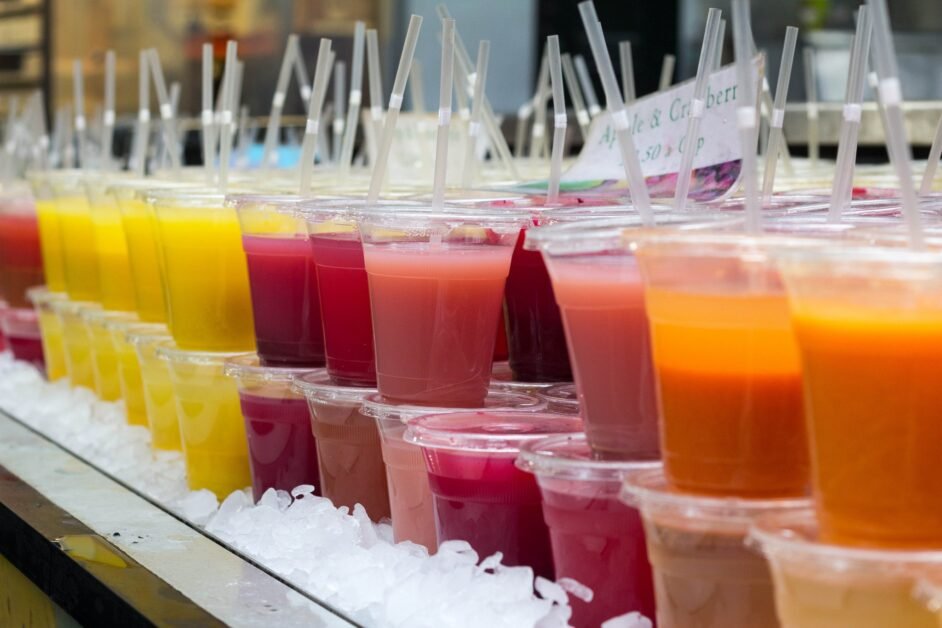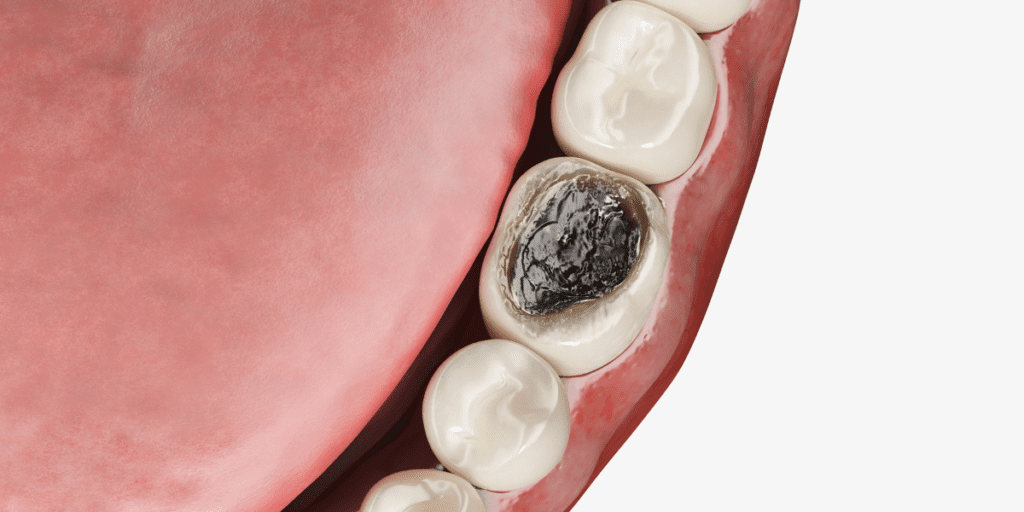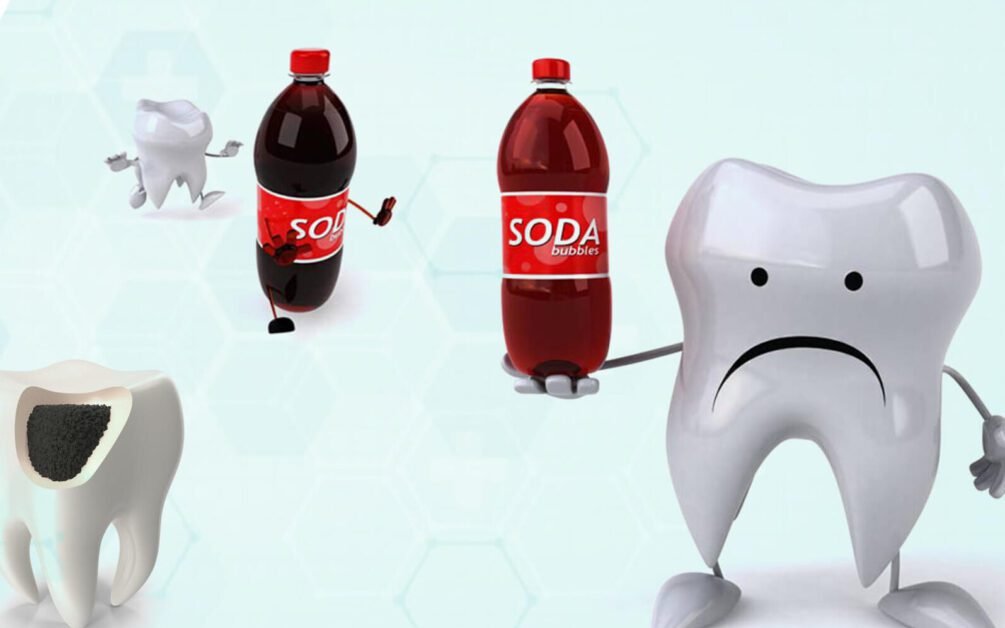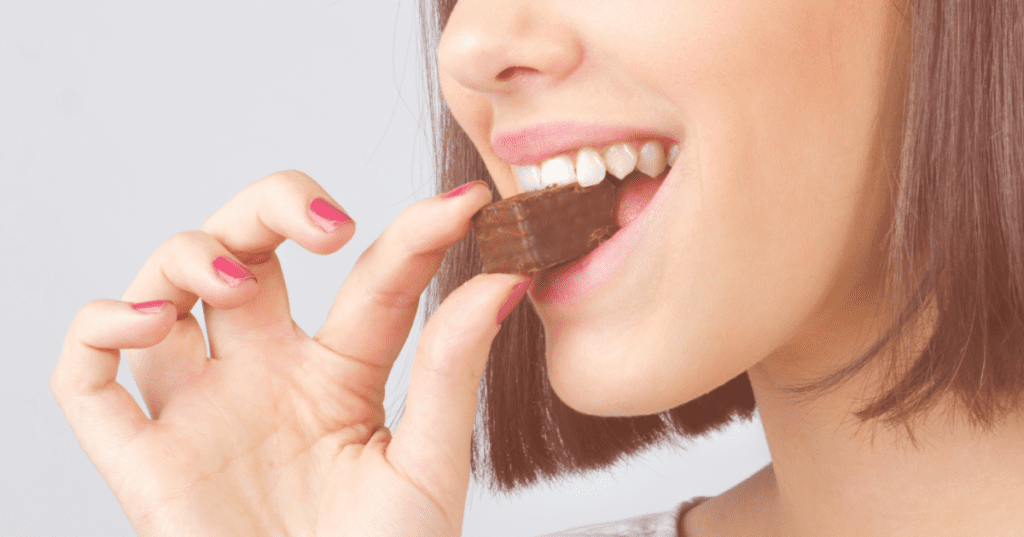Physical Address
304 North Cardinal St.
Dorchester Center, MA 02124
Physical Address
304 North Cardinal St.
Dorchester Center, MA 02124

Avoid the damage sugary drinks can cause to your teeth with these tips.
Tooth decay caused by sugary drinks is a pervasive issue that affects people of all ages. Understanding the science behind this process is crucial in order to protect our dental health. When we consume sugary beverages such as soda, energy drinks, or fruit juices, the sugar present in these drinks interacts with the bacteria in our mouths, forming acids that attack our tooth enamel.
This process, known as demineralization, weakens the protective layer of our teeth and leaves them vulnerable to decay. The acid produced can also lead to the formation of plaque, a sticky film of bacteria that can further contribute to tooth decay. The frequency and duration of exposure to sugary drinks play a significant role in the severity of tooth decay. Therefore, limiting the consumption of these beverages and maintaining a good oral hygiene routine are essential steps in preventing tooth decay caused by sugary drinks.

The relationship between sugar and dental caries is a well-established one, supported by numerous scientific studies and research. When it comes to oral health, the role of sugar cannot be ignored. Consuming excessive amounts of sugar, particularly from sugary drinks, greatly increases the risk of developing dental caries, commonly known as tooth decay.
Sugar acts as fuel for the bacteria in our mouths, leading to the production of acids that attack the enamel, the protective outer layer of our teeth. Over time, this acid attack weakens the enamel and causes cavities to form. The more sugary drinks consumed, the more fuel there is for these harmful bacteria, leading to an increase in tooth decay.
Moreover, it is not just the amount of sugar consumed that matters, but also the frequency and duration of exposure. Sipping on sugary drinks throughout the day provides a constant supply of sugar for the bacteria, prolonging the acid attack on teeth. This puts individuals who regularly consume sugary drinks at a higher risk of developing dental caries.
To better understand the impact of sugar on dental health, studies have examined the sugar content of popular beverages. The findings reveal alarming levels of sugar in various drinks including carbonated soft drinks, sports drinks, energy drinks, and fruit juices. These hidden sugars contribute significantly to tooth decay and should be taken into consideration when making beverage choices.
In conclusion, exploring the relationship between sugar and dental caries sheds light on the significant role sugar plays in damaging our teeth. It is essential to be mindful of our sugar intake, particularly from sugary drinks, as it greatly impacts our oral health. Knowing the risks associated with consuming excess sugar can empower individuals to make informed decisions about their beverage choices, ultimately leading to improved dental health and overall well-being.
Acidic beverages, such as soda, fruit juices, and sports drinks, play a significant role in tooth erosion. When consumed regularly, these drinks can cause irreversible damage to tooth enamel, leading to dental cavities and sensitivity. The high acidity in these beverages attacks the protective outer layer of the teeth, gradually wearing it away over time.
The erosive effect of acidic beverages on tooth enamel is twofold. Firstly, the acid directly softens and weakens the enamel surface, making it more susceptible to erosion. Secondly, the acidic environment created in the mouth encourages the growth of harmful bacteria, which further contributes to the breakdown of the tooth structure. The combined effect of acid erosion and bacterial activity creates a perfect storm for tooth decay.

Sugary drinks have long been recognized as a major contributor to dental plaque formation. When we consume sugary beverages, the bacteria in our mouths feed on the sugars and produce acids as a byproduct. These acids are extremely damaging to our tooth enamel, causing it to break down and leading to the formation of plaque.
Plaque is a sticky, colorless film that forms on the surface of our teeth. It contains a mixture of bacteria, food particles, and saliva, and if not properly removed, it can harden into tartar. The acids produced by the bacteria in plaque attack the enamel, weakening it over time and increasing the risk of cavities and tooth decay.
It’s worth noting that the frequency and duration of exposure to sugary drinks are important factors in plaque formation. Sipping on sugary beverages throughout the day, or consuming them before going to bed without brushing, allows the acids to continually attack and erode the enamel. This is why it’s crucial to limit our intake of sugary drinks and practice good oral hygiene to minimize the risk of plaque formation and tooth damage.
Sugary beverages have long been associated with negative effects on dental health, particularly in the long term. Regular consumption of sugary drinks can have a cumulative detrimental impact on teeth, leading to various oral health issues. The high sugar content in these drinks provides a favorable environment for bacteria in the mouth, which thrive on sugar and produce acids that attack tooth enamel.
Over time, the repeated acid attacks weaken the enamel, making teeth more susceptible to decay. This can result in cavities, tooth sensitivity, and even tooth loss. Furthermore, the acids in sugary beverages not only erode tooth enamel but also promote the formation of dental plaque. Plaque is a sticky film of bacteria that adheres to the teeth and can lead to gum disease and other oral health problems if not properly managed.
It is important to recognize that the long-term effects of sugary beverages on teeth go beyond immediate decay. The damage caused by consuming these drinks regularly can be irreversible and may require extensive dental treatment to restore oral health. Therefore, it is crucial to be mindful of our beverage choices and take proactive measures to protect our teeth from the potential harm caused by sugary drinks.
Sugar is one of the main culprits behind tooth decay and dental caries. While it is important to be mindful of our overall sugar consumption, certain sugary drinks can be particularly harmful to our teeth. Identifying these common beverages can help us make informed choices and take steps to protect our dental health.
One of the primary offenders is soda, which is loaded with sugar and highly acidic. The combination of sugar and acidity creates the perfect environment for bacteria to thrive in our mouths, leading to tooth decay. Energy drinks are another common culprit, often containing high levels of sugar and acidic ingredients that can erode tooth enamel over time. Fruit juices, although perceived as healthy alternatives, can also be harmful if they contain added sugars. These drinks not only have high sugar content, but they can also be quite acidic, causing damage to our teeth. By being aware of the sugar content and acidity levels of these common sugary beverages, we can make choices that promote good oral health.
| Sugary Drink | Sugar Content (per 12 oz serving) | Harmful Effects on Teeth |
|---|---|---|
| Soda (e.g., Coca-Cola) | Approximately 39 grams | Erosion of tooth enamel, increased risk of cavities |
| Fruit Juice | Varies depending on type | High sugar content can lead to decay if consumed in excess |
| Sports Drinks | Approximately 21 grams | Acidic and high in sugar, can contribute to tooth erosion |
| Energy Drinks | Approximately 27 grams | High acidity and sugar content can damage tooth enamel |
| Sweetened Iced Tea | Varies depending on preparation | Can contain high amounts of added sugars, harmful to teeth |
| Flavored Water | Varies depending on brand | Some flavored waters can contain added sugars, watch labels |
When it comes to maintaining good oral health, the drinks we consume play a crucial role. Thankfully, there are alternative options available that not only quench your thirst but also promote the well-being of your teeth. One such option is water, which is not only free of sugars and acids but also helps rinse away food particles and strengthen tooth enamel. Drinking water throughout the day can help stimulate saliva production, which naturally helps to neutralize acids in the mouth and prevent cavities.
Another alternative drink option that promotes good oral health is unsweetened or herbal tea. Rich in antioxidants, herbal teas can reduce inflammation and help protect against gum disease. Green tea, in particular, contains compounds that can inhibit the growth of bacteria associated with plaque formation. Moreover, unsweetened tea does not contain harmful sugars or acids, making it a much healthier choice for your teeth than sugary drinks.
| Drink Option | Benefits for Oral Health |
|---|---|
| Water | – Helps rinse away food particles and acids |
| – Maintains saliva production, which aids in cleansing | |
| and remineralizing teeth | |
| Green Tea | – Contains catechins that suppress bacteria and reduce |
| inflammation in the mouth | |
| – Helps fight against bad breath and cavities | |
| Milk (low-fat) | – Provides calcium and phosphates for tooth enamel strength |
| – Contains casein, which forms a protective film on teeth | |
| against acid erosion | |
| Herbal Teas (e.g., | – Some herbal teas like chamomile and peppermint can |
| chamomile, | reduce inflammation and soothe gums |
| peppermint) | – Naturally caffeine-free, reducing dehydration and |
| dry mouth symptoms | |
| Coconut Water | – Contains electrolytes that can help maintain hydration |
| and balance oral pH | |
| – Low in sugar, reducing the risk of tooth decay | |
| Kefir | – Contains probiotics that promote a healthy balance of |
| bacteria in the mouth and gut | |
| – May reduce the risk of cavities and gum disease |
Reading labels is a crucial step in ensuring that you are making informed decisions about the foods and beverages you consume, especially when it comes to hidden sugars. Many people are unaware of just how much sugar can be hiding in their favorite drinks, even those that appear to be “healthy” or “natural.” By taking the time to read and understand the information on beverage labels, you can avoid unnecessary sugar intake and protect your dental health.
Hidden sugars can be found in various forms such as high fructose corn syrup, sucrose, glucose, maltose, and dextrose. These sugars may be listed under different names on the label, making it essential to become familiar with the terminology used by manufacturers. By carefully examining the nutrition facts panel, you can identify the total sugar content per serving and assess whether a particular beverage fits into your desired sugar intake goals. Additionally, be on the lookout for any added sugars, as these can contribute to tooth decay and other oral health problems.
By making a habit of reading labels, you can regain control over your sugar consumption and make informed choices for your oral health. Understanding the hidden sugars lurking in your favorite drinks can empower you to take steps towards reducing your sugar intake, ultimately benefiting your overall dental health. So, next time you reach for that refreshing beverage, remember to take a moment to carefully examine the label and make a choice that aligns with your oral health goals.
Reducing sugar intake from beverages is a crucial step towards maintaining good oral health. Here are some tips to help you make healthier drink choices and minimize the harmful effects of sugary beverages on your teeth:
1. Opt for water or unsweetened drinks: Water is the best choice for hydration and has no added sugars. If you prefer flavored beverages, choose those without added sugars or artificial sweeteners. Unsweetened tea or sparkling water with a splash of lemon or lime are refreshing alternatives.
2. Read labels carefully: Many seemingly healthy drinks can be loaded with hidden sugars. Before purchasing a beverage, check the ingredient list and nutrition facts panel. Look out for terms like sucrose, glucose, fructose, or any other types of added sugars. Remember, even natural fruit juices can have high sugar content.
3. Gradually reduce sugar in your drinks: If you’re used to sugary beverages, try gradually cutting back on the amount of sugar you add. Start by reducing one teaspoon per week until your taste buds adjust. Over time, you’ll find that you enjoy drinks with less sweetness.
By implementing these tips, you can take control of your sugar intake from beverages and protect your teeth from the harmful effects of excessive sugar consumption. Remember, the choices you make today can have a lasting impact on your oral health for years to come.
Limiting the consumption of sugary drinks is crucial for maintaining good oral health and preventing tooth decay. Here are some practical strategies to help reduce your intake of these harmful beverages:
1. Opt for water or unsweetened drinks: Replace sugary drinks with water or other sugar-free options like herbal tea, infused water, or sparkling water. These alternatives not only quench your thirst but also promote good oral health.
2. Read labels carefully: Pay attention to the ingredients and nutritional information on beverage labels. Look for hidden sugars such as high-fructose corn syrup, sucrose, or dextrose. Choose drinks with little to no added sugars to protect your teeth from unnecessary harm.
By implementing these strategies, you can significantly reduce your consumption of sugary drinks and improve your dental health. Remember, prevention is always better than cure, and making informed choices now can safeguard your teeth in the long run. So, the next time you reach for a beverage, consider the impact it may have on your oral health and opt for a healthier alternative.
Safeguarding your teeth while enjoying an occasional sugary beverage is crucial for maintaining good oral health. Although it’s best to limit your consumption of these drinks, there are steps you can take to minimize their impact on your teeth.
First and foremost, it’s important to understand that moderation is key. Limit your intake of sugary beverages to occasional indulgences rather than making them a daily habit. By reducing the frequency of exposure to sugar, you can significantly lower the risk of tooth decay and erosion.
When enjoying a sugary beverage, it’s advisable to use a straw. This helps to minimize direct contact between the sugary liquid and your teeth, reducing the chances of enamel erosion and decay. Additionally, drinking water after consuming a sugary beverage can help to rinse away the residual sugar and restore a more neutral pH level in your mouth.
Furthermore, practicing good oral hygiene is essential in safeguarding your teeth from the negative effects of sugar. Brushing your teeth twice a day with fluoride toothpaste and using dental floss daily can help remove plaque and prevent tooth decay. Additionally, scheduling regular dental check-ups and professional cleanings will ensure any signs of tooth damage or decay are detected early on.
Remember, while it’s important to enjoy life’s pleasures, it’s equally important to prioritize your dental health. By following these guidelines and seeking professional dental advice, you can protect your teeth while still indulging in an occasional sugary beverage.

Proper oral hygiene is paramount in protecting teeth from the damaging effects of sugar. While it can be tempting to solely focus on reducing sugar intake, maintaining a consistent and thorough oral care routine is equally crucial in combating tooth damage caused by sugary drinks.
The first step in practicing proper oral hygiene is brushing your teeth at least twice a day with a fluoride toothpaste. This helps remove plaque buildup, prevents tooth decay, and strengthens the enamel. It is important to use a soft-bristled toothbrush and gentle, circular motions to avoid damaging the gums. Additionally, don’t forget to replace your toothbrush every three to four months or sooner if the bristles become frayed.
Beyond brushing, incorporating daily flossing into your oral care routine is essential. Flossing helps remove plaque and food particles from between the teeth and along the gumline, areas that a toothbrush cannot reach. By making flossing a habit, you significantly reduce the risk of developing cavities and gum disease.
Alongside brushing and flossing, using an antibacterial mouthwash can provide an extra layer of protection against sugar-induced tooth damage. Mouthwash helps kill bacteria in the mouth, freshens breath, and reduces plaque buildup. However, it is important to choose an alcohol-free mouthwash to avoid drying out the mouth and causing further oral health issues.
While proper oral hygiene is essential in combating sugar-induced tooth damage, it is equally important to visit your dentist regularly. Dental check-ups allow for professional cleaning and early detection of any potential dental issues. Your dentist can also provide personalized advice and recommendations on how to maintain optimal oral health and mitigate the negative effects of sugary drinks.
By prioritizing proper oral hygiene and seeking professional dental care, you can effectively combat the tooth damage caused by sugar. Remember, prevention is key in maintaining a healthy smile and preserving your overall dental health.
Sugar-sweetened beverages, such as sodas, fruit juices, and energy drinks, have long been implicated as a major contributor to dental health problems. The high sugar content in these beverages provides a voracious feast for the harmful bacteria present in our mouths. As these bacteria feed on sugars, they produce acids that attack the enamel of our teeth, leading to tooth decay and cavities. In fact, studies have shown that individuals who regularly consume sugary drinks are at a higher risk of developing dental caries and other oral health issues.
The negative effects of sugary drinks on overall dental health extend beyond just tooth decay. Acidic beverages, like certain soft drinks and sports drinks, can also erode the protective enamel layer of our teeth. Over time, this erosion can lead to tooth sensitivity, discoloration, and an increased susceptibility to cavities. Additionally, the consumption of sugary drinks contributes to the formation of dental plaque, a sticky film of bacteria that adheres to the teeth. Plaque not only causes tooth decay but also increases the risk of gum disease, which can ultimately lead to tooth loss if left untreated. Therefore, it is crucial to recognize the significant impact that sugary beverages can have on our dental health and take proactive measures to reduce their consumption.
It is vital to educate children about the harmful effects of sugary beverages in order to promote good oral health and prevent dental problems. Sugar-sweetened drinks, such as soda, fruit juices, and sports drinks, can have a detrimental impact on their teeth and overall well-being. By increasing awareness and providing accurate information, we can empower children to make healthier choices and protect their precious smiles.
Tooth decay is one of the most common consequences of consuming sugary drinks. When kids consume these beverages, the sugar combines with the bacteria in their mouths to produce acids. These acids attack the tooth enamel, gradually eroding it and leading to cavities. According to studies, children who frequently consume sugary drinks are more likely to develop dental caries compared to those who limit their intake. This emphasizes the importance of educating children about the negative effects of these drinks and encouraging them to opt for healthier alternatives.
Sugary drinks have long been recognized as one of the leading culprits behind tooth decay and cavities. The high sugar content in these beverages provides an ideal breeding ground for harmful bacteria in the mouth, leading to the production of acids that attack the tooth enamel. This process, known as demineralization, weakens the teeth over time and can eventually result in the formation of cavities.
To promote good oral health and combat the adverse effects of sugary drinks, it is essential to encourage a shift towards sugar-free alternatives. Sugar-free drinks not only eliminate the risk of tooth decay caused by excessive sugar intake but also offer other benefits for overall dental health. By choosing sugar-free options, individuals can minimize their exposure to acidic and sugary substances that erode tooth enamel and contribute to the formation of plaque. Additionally, opting for sugar-free drinks can help maintain a healthy pH balance in the mouth, reducing the risk of tooth erosion and enamel damage.
By actively promoting the consumption of sugar-free drinks, we can play a crucial role in building healthy habits and protecting dental health. Encouraging individuals, especially children, to make this shift is vital in preventing the development of oral health issues. Through education and awareness campaigns, dental professionals can highlight the harmful effects of sugary drinks while emphasizing the benefits of sugar-free alternatives. By empowering individuals to make informed choices and providing accessible options, we can create a lasting impact on oral health, ensuring a bright and cavity-free future.
Making informed decisions about your dental health is crucial to maintaining a healthy smile for years to come. By empowering yourself with knowledge about the impact of sugary drinks on your teeth, you can make choices that promote good oral health and prevent dental issues. Understanding the science behind tooth decay caused by sugary drinks is the first step in this process.
When you consume sugary drinks, the bacteria in your mouth feed on the sugars and produce acids as a byproduct. These acids attack the enamel, the protective outer layer of your teeth, causing it to weaken and eventually break down. Over time, this can lead to the formation of cavities and tooth decay. Furthermore, acidic beverages can also contribute to tooth erosion, as the acid itself can directly wear away the enamel. By being aware of these risks, you can make conscious decisions to limit your consumption of sugary and acidic drinks, thereby reducing the potential harm to your teeth.
Some common sugary drinks that can harm your teeth include soda, fruit juices, sports drinks, energy drinks, sweetened teas, and flavored water with added sugars.
Yes, there are alternative drink options that promote good oral health. Examples include water, unsweetened herbal teas, milk (without added sugars), and sugar-free beverages.
Reading labels can help you avoid hidden sugars in beverages by providing information on the total sugar content and identifying any added sugars. Look for ingredients like sucrose, fructose, glucose, corn syrup, or any words ending in “-ose” to spot added sugars.
Some practical strategies to limit sugary drink consumption include substituting sugary drinks with healthier options, diluting sugary drinks with water, consuming smaller portion sizes, and gradually reducing your intake over time.
Yes, you can still enjoy an occasional sugary beverage without damaging your teeth. However, it is important to follow proper oral hygiene practices, such as rinsing your mouth with water afterwards and brushing your teeth regularly, to minimize the potential damage.
Proper oral hygiene, such as brushing your teeth at least twice a day, flossing daily, and using mouthwash, helps remove plaque and bacteria from your teeth, reducing the risk of tooth decay and gum disease caused by sugary drinks.
Sugary drinks can significantly impact overall dental health by increasing the risk of tooth decay, tooth erosion, plaque formation, and gum disease. Regular consumption of sugary drinks can also lead to poor oral hygiene habits and other oral health issues.
To educate children about the harmful effects of sugary beverages, you can explain the impact of sugar on teeth, show them visuals of tooth decay or erosion, encourage them to drink water instead, and lead by example by making healthier drink choices yourself.
You can encourage a shift towards sugar-free drinks and build healthy habits by providing access to alternative drink options, educating others about the benefits of sugar-free drinks, promoting water as the go-to choice, and creating a supportive environment for making healthier choices.